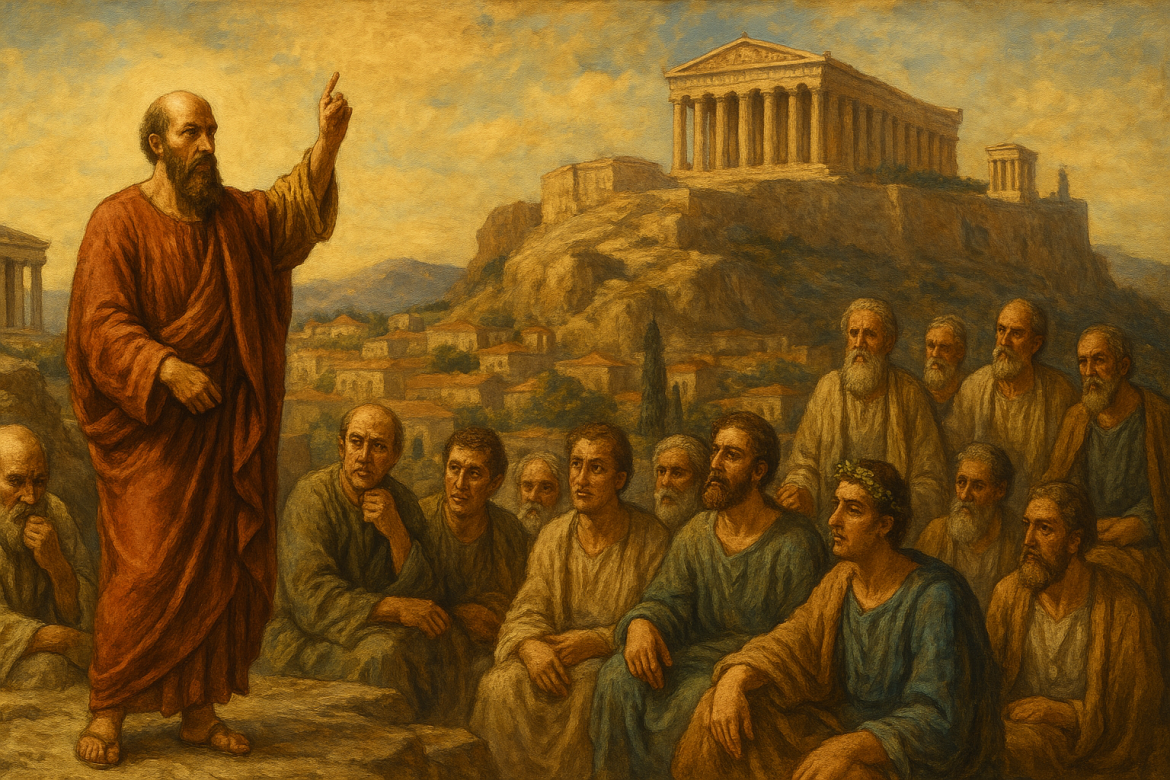Leah — The Unseen Praiser
Finding Our Reflection in Leah’s Story
What happens when we spend our lives comparing ourselves to others? Do we ever find contentment, or do we stay trapped in cycles of striving and disappointment? These are the questions explored through the life of Leah, the lesser-loved wife of Jacob, in the new Mirrors Series. Leah’s story isn’t just ancient history—it’s a mirror many of us can see ourselves in today.
Leah’s life in the pages of Genesis speaks to the quiet, overlooked faithful among us—the ones who show up, give their all, and still feel invisible. Her journey from rejection to praise offers not just comfort, but a powerful call to transformation.
Leah’s Moment in History
Leah lived around the Bronze Age in Haran—a vibrant trade hub in Upper Mesopotamia, now southern Turkey. Life was busy with herding, trading, and deep family traditions. She wasn’t raised in a quiet village but in a bustling cultural crossroads. Her father, Laban, was a wealthy herder, and Leah grew up in the shadow of her beautiful sister, Rachel.
When Jacob arrived from Canaan, fleeing his brother Esau, he fell instantly in love with Rachel. But Laban tricked him into marrying Leah first. Her marriage was not born of love, but of obligation. From the beginning, Leah lived with the knowledge that she was second choice—a painful truth many of us can relate to.
Identity: From Unloved to Worshiper
Leah’s name means “weary” or “cow-eyed,” a stark contrast to Rachel’s meaning: “ewe” or “lamb.” Rachel was adored. Leah was tolerated.
Yet Leah’s identity was not fixed by human opinion. Over time, she discovered a deeper truth: that being unseen by man does not mean being unseen by God. Leah began as a woman striving to earn love, naming her sons in the hope that Jacob would finally choose her. But something shifted by her fourth son, Judah. Instead of striving, she said, “This time I will praise the Lord.”
That moment changed everything. Her identity moved from unloved wife to beloved worshiper. Her worth was not in Jacob’s affection but in God’s presence.
Her Choices: Faithfulness Over Glamour
Leah made the right choices in the midst of heartbreak. She remained present. She mothered her children. She turned to God in prayer and praise, even when her circumstances didn’t improve.
Her shift wasn’t flashy. It was quiet. It was steady. And it was holy.
She chose to anchor her life in worship. Her legacy? Through her son Judah came King David. And through David came Jesus. Her faithfulness in obscurity shaped eternity.
Risks and Failures: Striving for Love
Leah was not perfect. She competed fiercely with Rachel. She gave her maid to Jacob, echoing the broken pattern of Abraham and Sarah. She traded mandrakes for nights with Jacob. Her love sometimes turned desperate, driven by the deep ache to be seen.
Comparison led her into choices that cost her peace. But God’s grace met her there. Even her mistakes didn’t disqualify her from God’s plan.
Ongoing Message: God Sees You
Leah’s life echoes one powerful truth: being overlooked by people doesn’t mean being overlooked by God. He saw her. He opened her womb. He chose her to carry forward His promise.
This message still speaks today. When we wonder, “Does anyone notice me?”—in our jobs, marriages, friendships—Leah’s story reminds us that God notices. He sees the quiet faithfulness, the hidden tears, the whispered prayers. And He delights in them.
Reflection: When You Feel Like Leah
Have you ever worked tirelessly without recognition? Loved deeply without being loved in return? Given your all and still felt invisible? Leah’s story is for you.
Ask yourself:
- Where have I felt unseen?
- What human approval have I been chasing?
- Where can I stop striving and start praising?
You don’t need to be chosen by people to be chosen by God. Leah reminds us to shift our gaze upward, to stop measuring our worth by others’ eyes and start anchoring it in God’s love.
Small Steps Forward
The Mirrors Series invites us to grow through small, faithful steps. Leah’s steps offer a practical way forward:
- Pray Before You Compare – When you feel envy rising, stop and turn to God. Ask for His vision instead.
- Practice Gratitude – Name what you’re thankful for. Let it fuel your praise.
- Reflect in Writing – Write where you’ve been striving for love or approval. Then, echo Leah’s words: “This time I will praise the Lord.”
- Speak to Another Leah – Encourage someone else who may feel overlooked. Be the voice of God’s love in their life.
- Limit Comparison – Take breaks from social media. Replace scrolling with scripture or service.
Encouraging Conclusion
Leah’s life teaches us that worship isn’t reserved for the fulfilled. It begins in brokenness. Her choice to praise in pain turned her life around—and changed history.
God’s love moved through Leah’s quiet faithfulness. And it can move through yours too. So if you feel like Leah—overlooked, weary, unseen—take heart.
God sees you. He always has. And He always will.

